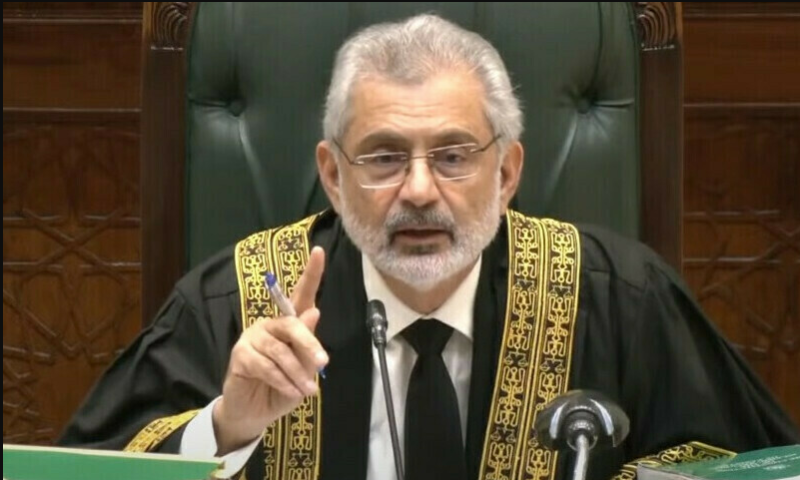Bench Formation
Chief Justice of Pakistan Qazi Faez Isa has underscored the critical importance of transparency and fairness in the judicial system, declaring that the era when Supreme Court outcomes could be predicted based on the bench composition is now a thing of the past.
In a significant address marking the commencement of the new judicial year, Justice Isa elaborated on the substantial reforms that have been instituted during his tenure.
Justice Isa pointed out that one of the key reforms was addressing the historical issue of limited interaction among Supreme Court judges.
He emphasized the role of the full court reference as a crucial platform for collective decision-making, which promotes better communication and collaboration among the justices.
A major reform highlighted by Justice Isa is the decision to broadcast public interest cases live. This initiative is aimed at enhancing transparency, allowing the public to directly observe court proceedings and ensuring that the judicial process remains open and accountable.
The Chief Justice also addressed the reformation of the case allocation process. He introduced a committee responsible for assigning cases to benches, moving away from the previous system where the Chief Justice held exclusive authority over case distribution.
This change is intended to eliminate any potential biases or influences in how cases are assigned, promoting fairness in judicial proceedings.
Justice Isa also took steps to curtail the privileges previously enjoyed by the Chief Justice. He mentioned the discontinuation of the use of high-end vehicles like the Mercedes Benz and bulletproof Land Cruiser, suggesting that these resources be redirected for public use, such as purchasing public buses.
This move reflects his commitment to reducing extravagance and reallocating resources to benefit the broader community.
Addressing the issue of “deputation” appointments, Justice Isa stated that individuals on deputation have been returned to their respective departments. This decision was made to ensure the Supreme Court operates efficiently and to facilitate the timely promotion of its staff.
In his address, Justice Isa also highlighted efforts to address staffing needs within the Supreme Court. He noted the promotion of 146 employees and the appointment of 78 new staff members as part of an ongoing effort to ensure the court’s efficient operation and expedite case resolution.
The Chief Justice stressed the importance of accurate and responsible media reporting, urging the press to focus on factual reporting rather than speculation.
He reiterated the Supreme Court’s commitment to judicial accountability, asserting that any law conflicting with fundamental rights must be declared null and void.
Justice Isa provided examples of the court’s commitment to accountability, including the dismissal of a Supreme Court judge who faced allegations in open court.
He also referenced the landmark Margalla Hills National Park case as evidence of the court’s dedication to environmental protection.
Addressing a more personal issue, Justice Isa mentioned the release of peacocks from the Chief Justice’s residence, emphasizing that these birds belong in the wild rather than in captivity.
Finally, Justice Isa discussed the formation of a case management committee, including Justices Mansoor Ali Shah and Munib Akhtar. Justice Shah has submitted his report on case management, while Justice Akhtar’s report is still pending.
He announced an end to the practice of granting adjournments in the Supreme Court and stressed that effective case management requires judges to actively hear and resolve cases.
I am a dynamic professional, specializing in Peace and Conflict Studies, Conflict Management and Resolution, and International Relations. My expertise is particularly focused on South Asian Conflicts and the intricacies of the Indian Ocean and Asia Pacific Politics. With my skills as a Content Writer, I serve as a bridge between academia and the public, translating complex global issues into accessible narratives. My passion for fostering understanding and cooperation on the national and international stage drives me to make meaningful contributions to peace and global discourse.










